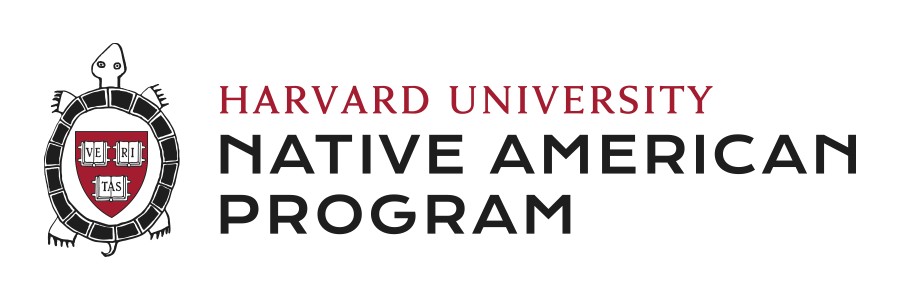Acknowledgement of Land and People
Harvard University is located on the traditional and ancestral land of the Massachusett, the original inhabitants of what is now known as Boston and Cambridge. We pay respect to the people of the Massachusett Tribe, past and present, and honor the land itself which remains sacred to the Massachusett People.
Overview
Our Acknowledgement of Land and People is the result of an on-going conversation between the Harvard University Native American Program (HUNAP) and leadership from the Massachusett Tribe at Ponkapoag. This method of direct relationship-building is a practice that speaks to HUNAP’s commitment to meaningfully engage with our local Native American and Indigenous partners in ways that are substantive and impactful.
In 2019, members of the HUNAP Faculty Advisory Board initiated a series of conversations with the Massachusett Tribe to discuss, among many things, the ways that HUNAP could honor the space and land that Harvard occupies and its continued connection to the Massachusett people. This consultation resulted in framing our land acknowledgement as an “Acknowledgement of Land and People.” Anyone is free to adopt this Acknowledgement for their use as desired.
The Purpose of a Land Acknowledgement
Indigenous Land acknowledgements are becoming more commonplace in society. Most often, you’ll hear a statement read at the openings of events, footnoted in public communications, or referenced in formal introductions. Irrespective of format, such recognition of Indigenous territory or homelands is shared to inform the audience that specific Native American peoples have acted, and continue to act, as stewards of the land and space associated with the respective gathering.
Reciting whose traditional land we’re on is educational, but does not in itself necessarily reflect the long-held practice that Native American and Indigenous people have observed when engaging in international affairs. The protocol to acknowledge land and people is rooted in the practice of Indigenous diplomacy and goes beyond a simple statement of fact. It is a commitment—marked by ceremony—to act in good faith, to cultivate relationships, and to undertake reciprocal action. Of course, academic discussion of land titles and politics in the United States would not be accurate if it did not mention Indigenous nations and the processes by which both land titles and sovereignty were altered by colonial arrangements.
Today, the practice of land acknowledgments continues to evolve. HUNAP’s acknowledgement is indeed a statement, but it resulted from meetings and conversations in which listening to our tribal partners was imperative. Our acknowledgment may evolve in response to the ongoing wishes and concerns of our Indigenous partners as HUNAP moves forward.
Is this the official Land Acknowledgement of Harvard University?
No. The statement above is the acknowledgement that HUNAP has developed in consultation with leaders of the Massachusett Tribe at Ponkapoag. Whether and how the University might adopt a campus-wide Indigenous land acknowledgment that is responsive to several regional Indigenous partners is a complex matter that is under current discussion with campus leadership.
May I use this acknowledgement for opening Harvard events?
Yes, keeping in mind that our Acknowledgment emerged from tribal consultation and direct relationships. Some might wish to reach out to the Massachusett Tribe and/or to develop a direct relationship with the leaders of other Native American communities in Massachusetts to better express the relationality that should give rise to land acknowledgements.
Is HUNAP available to offer land acknowledgements?
While HUNAP believes that land acknowledgements are a practice that everyone can benefit from, opening remarks from HUNAP staff cannot meaningfully stand in for relationships with tribal representatives of regional Indigenous nations. Instead, offering the Acknowledgment that appears here is one acceptable practice. Beyond this, Massachusett tribal members can be invited to open an event with their own words to welcome an audience to their homelands or to offer guidance on the development of an appropriate acknowledgement of their own traditional Indigenous territories, lands, and spaces. Please keep in mind, however, that tribal members have many obligations, and so invitations for openings or consultations are required well in advance of any deadlines or events.
Our office wishes to create our own land acknowledgement. How do we start?
A land acknowledgement is a recognition of relationships and should be shaped by undertaking actions to engage regional Native American communities. Thus, an acknowledgment is merely one facet of a larger relationship that might entail collaborations and exchanges between your unit and regional Indigenous communities of mutual benefit. We invite you to start with simple questions that should be answered prior to discussions with prospective Indigenous partners such as, “What is the purpose of our land acknowledgement? Who does it benefit? How does it demonstrate engagement with local Native American people? What are our ongoing responsibilities?” Once you have answered these questions for yourselves, then it may be appropriate to reach out to tribal members.
Common pitfalls to avoid in developing your own land acknowledgment include:
- Approaching tribal leaders for consultation without first engaging in the internal work needed to answer basic questions about the meaning of a land acknowledgement for your unit or organization
- Creating a new boilerplate template for simple recitation without tribal consultation
- Failing to reach out to local tribal communities
- Expecting Native American people to contribute uncompensated labor toward opening an event or the development of a land acknowledgement
- Copying the text of an existing land acknowledgement that has not been developed with tribal consultation
- Unwillingness to change your land acknowledgement, once it has been created
We encourage you to engage the public discourse concerning land acknowledgements as these practices continue to evolve. Some recent examples include:
- Land acknowledgments are often an empty gesture, some Indigenous people say, CNN.com (Nov. 2021)
- Beyond Land Acknowledgment: A Guide, NativeGov.org (Sept. 2021)
- So you want to acknowledge the land?, HighCountryNews.com (Apr. 2021)
- So you began your event with an Indigenous land acknowledgment. Now what?, NPR.org (March, 2023)

